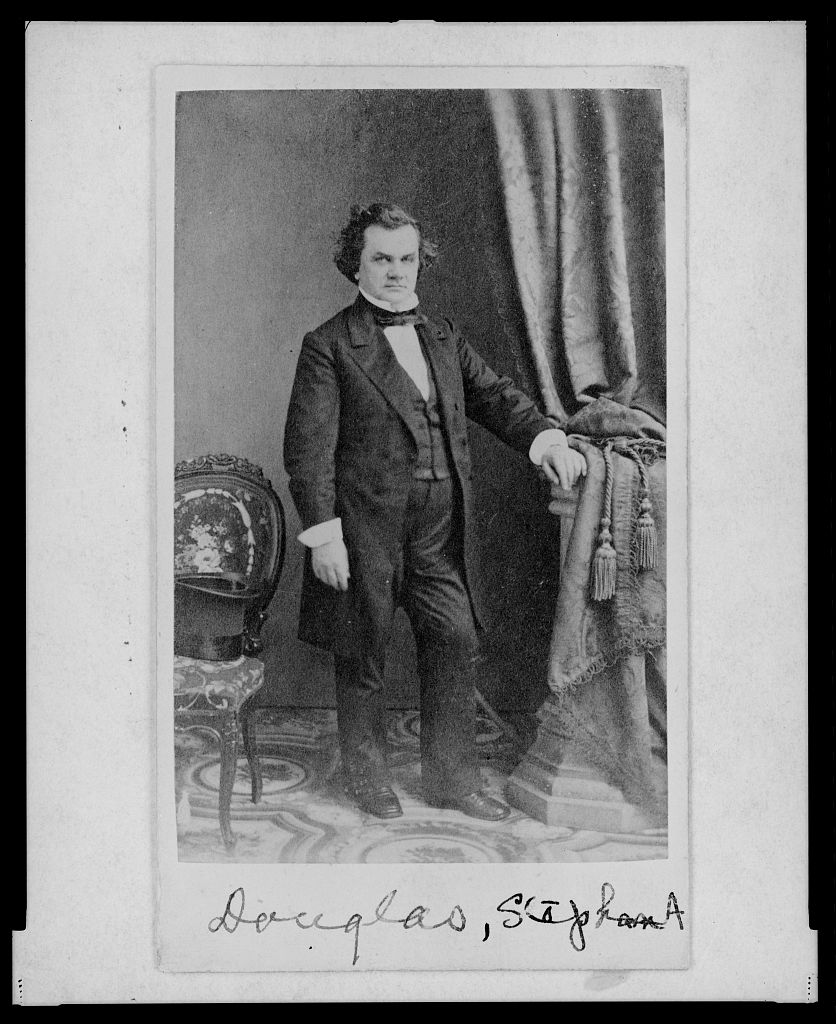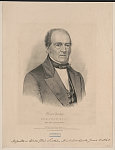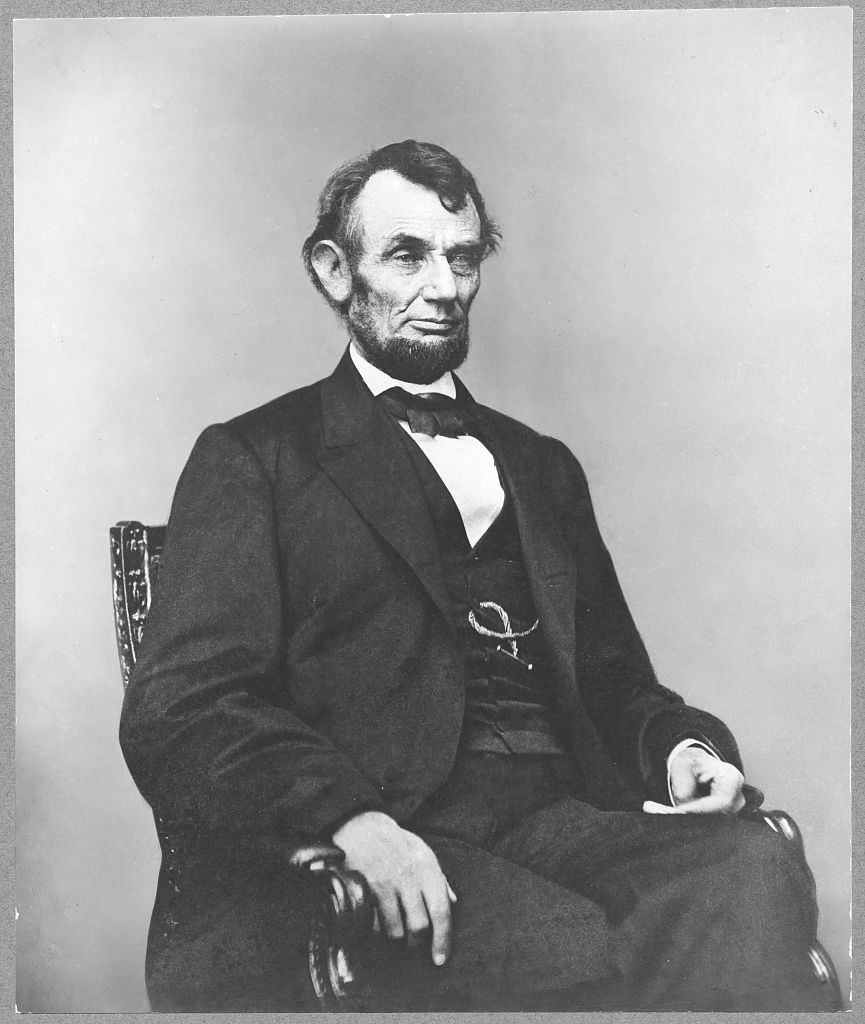The 1860 Presidential Election in Jefferson County, Virginia
By P. Douglas Perks, Historian
Jefferson County Museum
Among other things, 1860 was a census year. As compared to 1850, the Jefferson County’s population had declined by 5%, from 15,357 in 1850 to 14,535 10 years later. Virginia population statistics were broken down into four categories: white, free colored, slave and civilized Indians [Note: these are the terms used in the 1860 US Census]. The breakdown of the 14,535 total in Jefferson County (with percentage in parentheses) was: white – 10,064 (68%), free – 511 (4%), and enslaved 3,960 (27%). There were no Native Americans residing in Jefferson County in 1860. In the Lower Shenandoah Valley, Jefferson County was representative of a trend. Generally, the further west you traveled in Virginia, the fewer the numbers of enslaved people. For example, neighboring counties to the south, Clarke and Frederick, had a total population of 7,146 and 16,516 with 3,375 (47%) enslaved people in Clarke and 2,259 (14%) in Frederick County. To the west, Berkeley County’s total population of 12, 525 included 1,650 (13%) enslaved people while in Morgan, 94 (3%) of its total population of 3,732 was enslaved. In the northern panhandle counties of Brooke, Hancock, and Ohio, they had a combined population of 32, 359 with a total of 120 (0.37%) enslaved people in all three counties.
In the fall of 1860 Jefferson County, Virginia was abuzz with talk about the upcoming presidential election. If Charles Town’s weekly newspapers were an accurate measure, it appeared that locally the race had narrowed down to two of the four candidates. Editorially, The Virginia Free Press had conservative tendencies and supported the Whig Party until its demise in 1858. In the 1860 presidential election, the Free Press supported the candidacy of John Bell who campaigned on the platform “The Constitution of the Country, the Union of the States, and the enforcement of the Laws.” Page Two was the Free Press’ editorial page, and in the weeks leading up to the election, there were numerous announcements for community meetings in support of Bell and his Constitutional Union Party.

Editorially, the Spirit of Jefferson leaned toward the Democratic Party, and in the 1860 election, the Spirit threw its support behind Stephen A. Douglas and his National Democrats. As in the Free Press, the Spirit’s Page Two had articles in support of their candidate with headlines like “DOUGLAS IN VIRGINIA,” and “Another Democratic Organ in Virginia Out for Douglas?” and “Judge Douglas in the Valley.” This is not to say that there was no mention of either of the other two candidates. In both weeklies, there was coverage of the campaign of the Southern Democrat John Cabell Breckinridge and the Republican Abraham Lincoln. However, from the tenor of what was written, it was obvious that neither Breckinridge nor Lincoln held favor with either the Spirit of Jefferson or the Virginia Free Press.
In 1860, the Commonwealth of Virginia still used the viva voce or voice vote system. Occasionally someone will state that in the 1860 presidential election, Abraham Lincoln and the Republican Party were not on the ballot in Jefferson County. Technically they are correct, because there were NO paper ballots used in Jefferson County in 1860. In fact, none of the candidates were “on the ballot.” Instead, each candidate and their party printed a party ticket which listed their state and national candidates. This served as a guide for voters when they went to the polls to cast their vote.
There were eight voting precincts in Jefferson County in 1860: Kabletown (No. 1), Middleway (No. 2), Charlestown (No. 3), Charlestown (No. 4), Shepherdstown ((No. 5), Shepherdstown (No 6), Bolivar (No. 7), and Harpers Ferry (No. 8). Each precinct was overseen by three commissioners and one officer, all appointed by the governor. A poll book was prepared listing the names of candidates for office. The voter would come to the polling place, approach the commissioners, and tell them who they were voting for (viva voce – voice vote). Their name would be written down in the appropriate column. Envisioning this scene helps you understand why the West Virginia’s constitution, adopted in 1863, specified, “the mode of voting shall be by [paper] ballot.”

A total of 1,857 Jefferson County white men voted in the 1860 presidential election. John Bell and his Constitution Union party won the county with 959 votes that represented 51% of the total number of votes cast. Bell won every precinct except Harpers Ferry which cast 203 votes for Stephen Douglas compared to 167 for Bell. John Breckinridge ran a distant second to Bell capturing 458 or 25% of the total. Stephen Douglas was a close third with 440 votes or 24% of the total vote. In Jefferson County, no one approached a voting commissioner and said, “I’m for Lincoln.”
Following Jefferson County’s lead, by the narrow margin of 358 votes, John Bell’s 74,681 votes beat John Breckinridge’s 74,323, thus giving Bell Virginia’s 15 electoral votes. Statewide, Abraham Lincoln recorded 1,929 votes including 16 votes in Alexandria, 24 in Fairfax, and 11 in Loudoun County. Most of Lincoln’s support in Virginia came from counties which in 1863 would form the new state of West Virginia. The three northern panhandle counties of Brooke, Hancock, and Ohio cast a total of 1,198 votes for Lincoln, 61% of the total. Stephen Douglas finished a distant third in Virginia with just 16,290 votes.

Nationwide, especially in states north of the Mason-Dixon Line, Abraham Lincoln had more success than his performance in Virginia or in any of the southern states for that matter. By a wide majority, Lincoln won the Electoral College capturing 180 of 303 votes that was 59% of the total. The popular vote was another matter as his 1,866,452 votes represented a plurality of 40% and not a majority of the votes cast. Nevertheless, Abraham Lincoln had won the 1860 Presidential Election and would be sworn in on March 4, 1861 as the 16th President of the United States.
Note: This article originally appeared in the column “Mr. Jefferson’s County.”